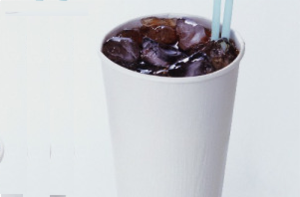It seems that every sugar-sweetened beverage has a “diet” counterpart these days. Many people want to lose weight and eat healthier, and food manufacturers have responded by creating an endless array of beverages that contain low-calorie and no-calorie sweeteners designed to taste similar to their sugary equivalents. But you may also be wondering if these sugar-free substitutes are necessarily healthier. InsideTracker can provide you with a personalized food recommendations that are tailored to fit your calorie requirements.
So, what is an artificial sweetener? They’re synthetic sugar substitutes that are often derived from naturally-occurring substances, including herbs and sugar itself. Although some of these sweeteners come from “natural” substances, they are highly processed, as is the case with sugar-sweetened beverages that contain stevia.
Here are the facts: the average 12-ounce can of sugar-sweetened soda contains about 150 calories, most of which are derived from sugar. The same amount of diet soda contains zero calories. The choice seems easy, doesn’t it? The American Heart Association (AHA) and the American Diabetes Association (ADA) have stated that using artificial sweeteners in place of sugar is an appropriate method to combat obesity, metabolic syndrome, and diabetes. These organizations emphasize that artificial sweeteners are not cure-alls for heart disease and obesity, but can help people attain and maintain a healthy body weight.
Many people are suspicious of artificial sweeteners because they have had their health effects questioned for many years. Until about ten years ago, the FDA required a potential health risk label on saccharine. Thus far, the FDA has only approved five artificial sweeteners and one natural low-calorie sweetener thus far: saccharin, acesulfame, aspartame, neotame, sucralose, and stevia. But are these artificial sweeteners really safe?
Although the FDA has ruled that these sweeteners are safe, most research studies involved subjects who consumed much less than the average 24 ounces per day that are commonly ingested by people who consume diet drinks. In essence, we don’t truly know what effect consuming large amounts of artificial sweeteners over a long period of time will have on our bodies.
Aside from potential safety issues, very complex mechanisms determine how our bodies and brains respond to these sweeteners. For instance, many nutritionists worry that sugar substitutes can trigger bad habits.; people with a sweet tooth might off-set the weight-loss benefits of artificial sweeteners by seeking out other sugary foods. The mentality that “if I’m drinking diet soda, it’s okay for me to have cake” is so pervasive that the AHA and the ADA have warned consumers that calories can be added back in by consuming sugary foods later in the day. Artificial sweeteners can also play a trick on our minds by causing us to disassociate sweetness with caloric intake. Consequently, we may crave and seek out even more sweets, which can result in weight gain. Several studies have examined the connection between artificial sweeteners and weight gain, and one particular study found that individuals who consumed 21 diet beverages per week were twice as likely to become overweight or obese than people who did not drink diet beverages.
Additionally, sugar substitutes can alter our perceptions of taste because they are far sweeter than table sugar or corn syrup. Even a moderate amount of artificial sweetener can over-stimulate our sugar receptors and decrease our tolerance for complex flavors. This means that people who frequently consume products that contain artificial sweeteners may find that they lose taste for less intensely sweet foods, such as fruits, and completely lose tolerance for foods like vegetables, which tend to not be sweet at all. Nutritionists speculate that people who rely on artificial sweeteners may seek out foods that are heavily processed and less nutritious, while simultaneously avoiding fresh and nutrient-rich foods.
When choosing a beverage, it pays to be a savvy customer. While artificial sweeteners may help with weight management and control, they should only be used in moderation. But are artificially-sweetened beverages healthy? It depends on what you eat! Researchers say that there are no proven safety risks posed to individuals who consume these beverages, but they are only “healthy” in the context of the rest of your diet.
If you’re looking to cut back on your consumption of diet or sugar-sweetened beverages, there are lots of options! Here are some quick fixes to your drink dilemma:
Sparkling water, or regular water, flavored with lemon or lime Tea or coffee Low-fat milk 100 percent fruit and vegetable juice Water-fruit juice mixDeciding which choice is best for you depends on your nutrient needs and taste preferences. Remember to get your blood tested with InsideTracker to find out what your body needs and to get recommendations for healthy ways to control your weight with food choices and exercise.
